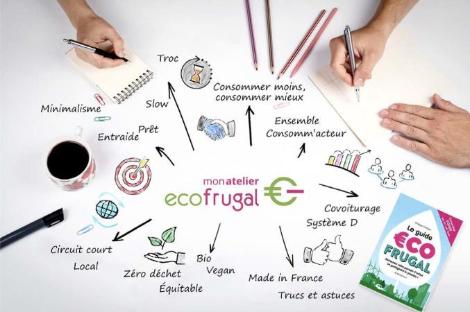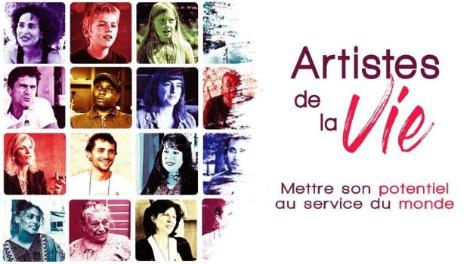Catalogue of remarkable citizen innovations 2020 : 9. Active citizen involvement on transition issues
The power of simple ideas that re-enchant the world !
September 2020
Innovation Citoyenne et Développement Durable (ICDD)
On the occasion of the 2020 Produrable Fair, in a difficult context due to a particularly aggressive pandemic, which challenges our lifestyles, our ways of producing and trading, as well as our modes of governance, the ICDD association is pleased to present some thirty innovations or remarkable citizen initiatives that it is currently supporting
Concerning climate issues, or the necessary abandonment of fossil fuels in the short or medium term, it was frequently said in high places that a solution would be found: Each time a major problem was posed, it seemed that a solution was always found, until now.
« Don’t worry: we’re taking care of you and everything is under control: you can come and go as you please. In fact, it has become clear, especially with the arrival of the pesky and elusive Coronavirus, that this is not the case: our world is very fragile, and it doesn’t take much to suddenly stop the frenzy of human activity and confuse the Academies of Science, Medicine and Technology.
Things are becoming more problematic, more complex and more difficult to predict. Faced with the urgency of the situation, faced with the tragedies that are happening and that are occurring more and more frequently, we realise that it is urgent for everyone, and in particular all citizens, to be « on deck » and to see what they can do to participate in the resolution of the problems that collectively face us all.
Citizens have not waited to be asked to do so: they have long been aware of the issues at stake and, here and there, have devised solutions that are particularly relevant:
-
By their originality
-
By their simplicity
-
By their return to a common sense that had often been lost
-
By their concern for economy of means
-
By their sense of solidarity
-
By their formidable efficiency
The « problem » being that « we didn’t ask them anything »! It is therefore very difficult for their solutions to be heard, encouraged and supported, and then, once they have been developed, to be promoted to the extent of their potential impact, which is sometimes considerable.
The field of citizen innovation has never been so vast; it concerns all aspects of common life, all dimensions of the human ecosystem. To carry out our monitoring, we have focused on the priority expectations of citizens in a number of areas.
Most territories now have ambitious objectives for transforming their way of life and acting to improve local ecology and solidarity. This transformation can only really be achieved if citizens are involved and are the main actors. This is often not easy, as for a long time transformations have been favoured through « top-down » logics…
Hence the importance of various initiatives promoting and stimulating citizen involvement, such as those presented here, to facilitate in-depth transitions.
Proposing collective ecofriendly workshops to get involved and change behaviour
Philippe Lévêque, in Paris, left the Morgan Bank… to counter the widespread idea that, to be ecological, one had to be rich. In reality, he realised that with a little common sense and curiosity about the various solutions available around us, it was perfectly possible to be ecological and save money! He began to write « ecofrugal » sheets, then self-published them in a collection: the Ecofrugal Guide, which was then republished by Marabout, and is now open source at this address: presse.ademe.fr/wp-content/uploads/2018/12/Guide-Ecofrugal.pdf .
But that is not enough, because it is not so easy to act alone: the issues are often complex to tackle. Where to start? How far should you go? Where do you find the elements to make the necessary changes? Etc…. In a well-structured group, it turns out that one is more efficient, more enterprising, and the process takes on the appearance of a collective adventure.
In 2018, it launched « Mon Atelier Ecofrugal », free, self-run eco-citizen workshops so that everyone can share their ecological solutions in person. The approach is now proposed to companies that would like to involve their employees in the ecological transition. (Sheet 9.1 and www.monatelier-ecofrugal.fr/ )

Offer all citizens the opportunity to be inspired by the pioneers, those who show the way: with « Les Artistes de la Vie! »
Mathias Lahiani, in Montpellier, became fascinated by those who, having a dream for the Common Good, took action and were able to realise at least « part of their dream ». He made short films about them (over several years, more than 1000 in total). Based on the most inspiring portraits, he made a film « Artists of Life » which he showed in 2019 in about 60 cinemas, with a debate and initiation of new potential projects on the spot.

The idea was to encourage the launch of new projects, and to make everyone in the room want to join the pioneers in their adventure: As the international expert Guy R. Cloutier, author of the book « L’avenir sera humain! « who accompanied Mathias in this epic: « Be all entrepreneurs of your lives, …in the service of the Common Good! »
Following the presentation of the film, debate in the room; after the debates, the conclusions of the spectators/actors are eloquent (see Sheet 9.2 and artistesdelavie.fr/
-
I was tired when I arrived and now I’m coming out with incredible energy ».
-
This film is much better than a shrink ».
-
« This should be reimbursed by the social security!""….
Helping all citizens of companies and organisations to formulate and realise their dreams and take care of the living
At the same time as he launched his film « Les Artistes de la vie », Mathias created, with a small team, a cooperative whose aim is to reveal, for companies and organisations, the values and commitments of employees and managers in order to co-define their Raison d’Être and to help them develop by taking care of the living.
There are effective tools that can help, and not everyone knows about them. This support approach can concern both company employees and employees/citizens involved in the transition of territories.
This is what Mathias launched in 2020 in Occitania to develop teams motivated by their own inspiration for the planet and the world. Sheet 9.3. and onpassealacte.fr/
Pass on personal experience by creating a dedicated website, and help convince!
« When citizens talk to citizens ».
The best way to convince someone to take action is to put them in touch with a peer: another citizen in whom they can easily project themselves and convince themselves that they too can take action, and if they do, someone is there to advise them.
Frédéric Wetzel, retired from the SNCF, embarked on an astonishing adventure: by making a thousand and one improvements to his « energy sieve » house (a pavilion built in the 1980s), he made it passive about ten years later (see above, Building theme and sheet 4.4). But he did not stop there: he also created a website www.jeveuxsauverlaplanete.fr where he records, year after year, all his experience, tips and tricks… to such an extent that his house is now used by engineers and researchers who are looking for data on real energy savings according to the climate, and who come to his house to get the information they need for their work. See Fact Sheet 9.4 and www.jeveuxsauverlaplanete.fr
In this spirit, we can also mention the whole « Do It Yourself » trend, which is so rich in useful information to stimulate the transition to action towards a new economy at low cost.
Propose days of solidarity and meaning « close to home » bringing together companies and committed associations in the same area
The Cameregarde cooperative proposes to company employees solidarity days (in particular within the framework of their RTT) to live inspiring experiences of solidarity commitment. These days, most often spent in teams, are very much appreciated by companies and their employees who want to participate in the development of new forms of solidarity or act locally for a more responsible world.
See Sheet 9.5 and cameregarde.com/
Sources
links to sheets : inks to the sheets see pdf doc attached(pdf/710 – icdd_rpertoire_des_innovations_citoyennes_produrable_200720.pdf)